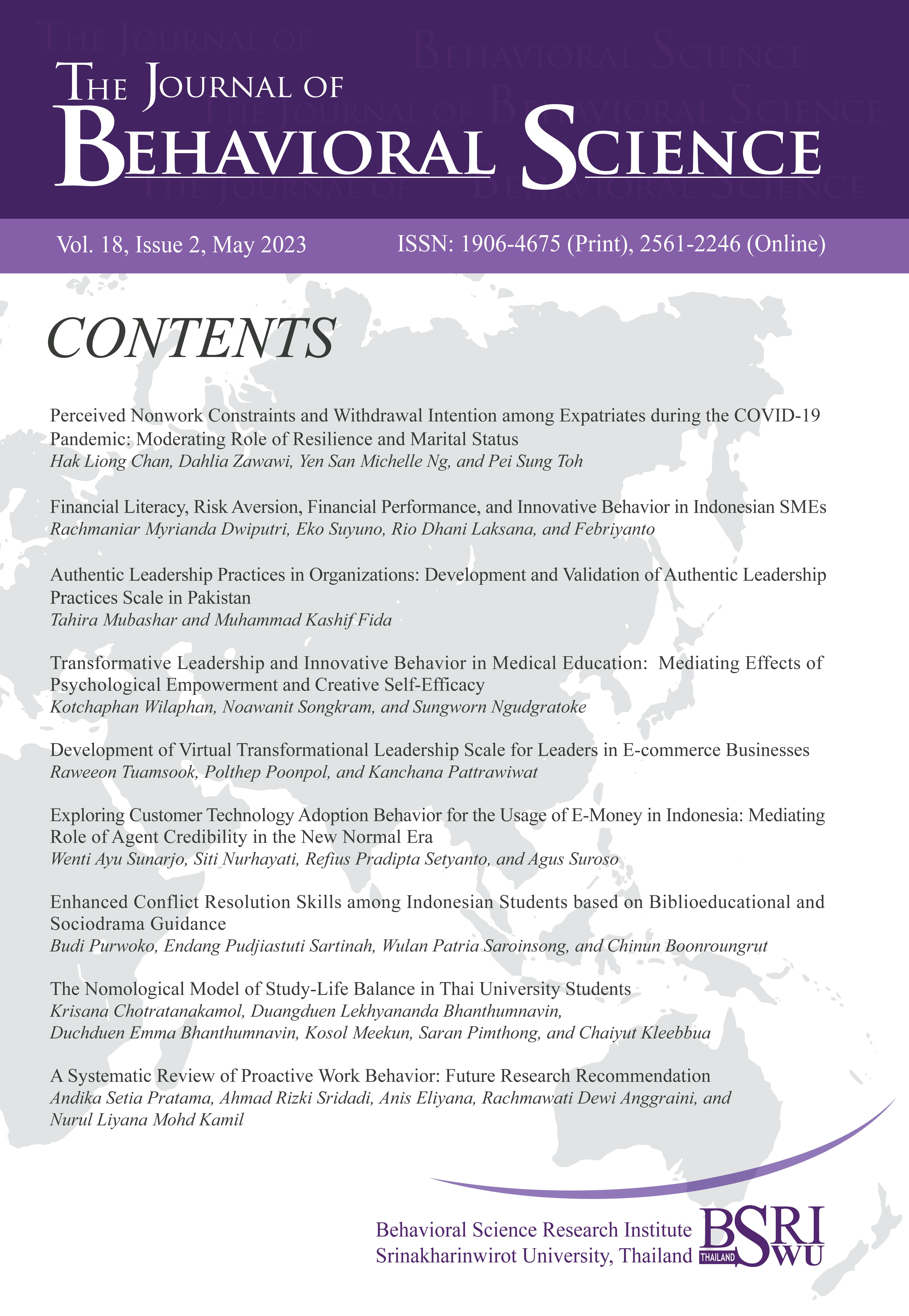Application of the Theory of Planned Behavior and Fraud Triangle Theory in Preventing Academic Fraud Behavior among Indonesian Students
Main Article Content
Abstract
In the era of globalization, job search has become very competitive. To compete and get accepted in the world of work, students are required to secure high achievements. This prompts some of them to participate in academic fraud to achieve high test scores. This research investigates academic fraud behavior among university students in Indonesia. Drawing on the theory of planned behavior and the theory of fraud triangle, this study investigated various factors that influence academic fraud behaviors among students. The sample of the study was 260 students, studying accounting education courses in Indonesia. Data were collected by questionnaires and analyzed using PLS-SEM. The results showed that subjective norms (β = .15, p = .00) and perceived behavioral control (β = .31, p = .00) were positively and significantly related to the intention to commit academic fraud behavior. Intention (β = .23, p =.00), pressure (β = .34, p = .00), and opportunity (β = .21, p = .00) had a significant positive effect on academic fraud behavior. However, an insignificant effect has been found in the relationship between attitudes toward behavior on intention (β = .04, p = .22) and rationalization on academic fraud behavior (β = .02, p = .30). These findings imply that academic fraud behavior is influenced by various factors, the main influence is pressure to cheat. From these findings it is recommended that the universities rearrange policies related to the factors prevent academic fraud in the university environment by reducing the pressures on students.
Downloads
Article Details

This work is licensed under a Creative Commons Attribution-NonCommercial-NoDerivatives 4.0 International License.


